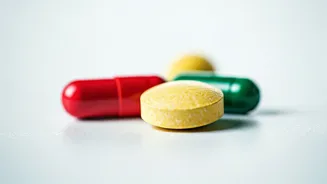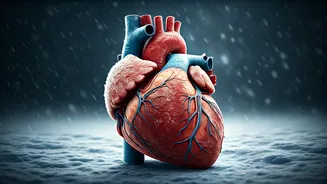Iron Deficiency
Iron deficiency anemia remains a significant public health concern in India, affecting a substantial portion of the population. Iron is vital for the production
of hemoglobin, the protein responsible for carrying oxygen throughout the body. Without sufficient iron, individuals may experience fatigue, weakness, and difficulty concentrating. In severe cases, it can lead to more serious health complications. The prevalence of iron deficiency stems from several factors, including dietary habits. Many Indian diets, while rich in carbohydrates, may lack sufficient iron-rich foods. Additionally, the bioavailability of iron can be compromised by the presence of substances like phytates found in certain grains and legumes, which inhibit iron absorption. Effective strategies to combat iron deficiency include consuming iron-rich foods such as leafy green vegetables, lentils, and lean meats. Additionally, combining iron-rich foods with vitamin C-rich foods, such as citrus fruits, enhances iron absorption. Iron supplementation, under the guidance of a healthcare professional, may also be necessary in some cases.
Vitamin D Shortage
Vitamin D deficiency is another widespread issue in India, despite the country's abundant sunshine. Vitamin D plays a crucial role in bone health, immune function, and various other physiological processes. It aids in calcium absorption, making it essential for strong bones and teeth. The primary source of vitamin D is sunlight, but factors such as skin pigmentation, clothing habits, and indoor lifestyles can hinder adequate sun exposure. Symptoms of vitamin D deficiency can range from bone pain and muscle weakness to increased susceptibility to infections. Addressing vitamin D deficiency involves a multi-pronged approach. Regular sun exposure, particularly during peak hours, is beneficial. Dietary sources of vitamin D include fatty fish, egg yolks, and fortified foods. In cases where dietary intake and sun exposure are insufficient, vitamin D supplementation may be recommended by a doctor. Regular monitoring of vitamin D levels through blood tests helps ensure optimal levels and guide appropriate interventions.
B12 Deficiency
Vitamin B12 deficiency is also a notable concern in India, especially among vegetarians and vegans, as B12 is primarily found in animal products. Vitamin B12 is crucial for nerve function, red blood cell formation, and DNA synthesis. Symptoms of B12 deficiency can include fatigue, neurological problems, and anemia. The body's ability to absorb B12 can also be compromised by conditions like pernicious anemia, which affects the stomach's ability to produce intrinsic factor, a protein necessary for B12 absorption. To combat B12 deficiency, individuals can consume B12-rich foods such as meat, poultry, fish, eggs, and dairy products. For vegetarians and vegans, fortified foods like plant-based milk and nutritional yeast, along with B12 supplements, are essential. Regular blood tests can help assess B12 levels and guide supplementation strategies as advised by a healthcare professional. Careful attention to dietary intake and supplementation can help manage and prevent the adverse effects of B12 deficiency, ensuring overall health and well-being.




















